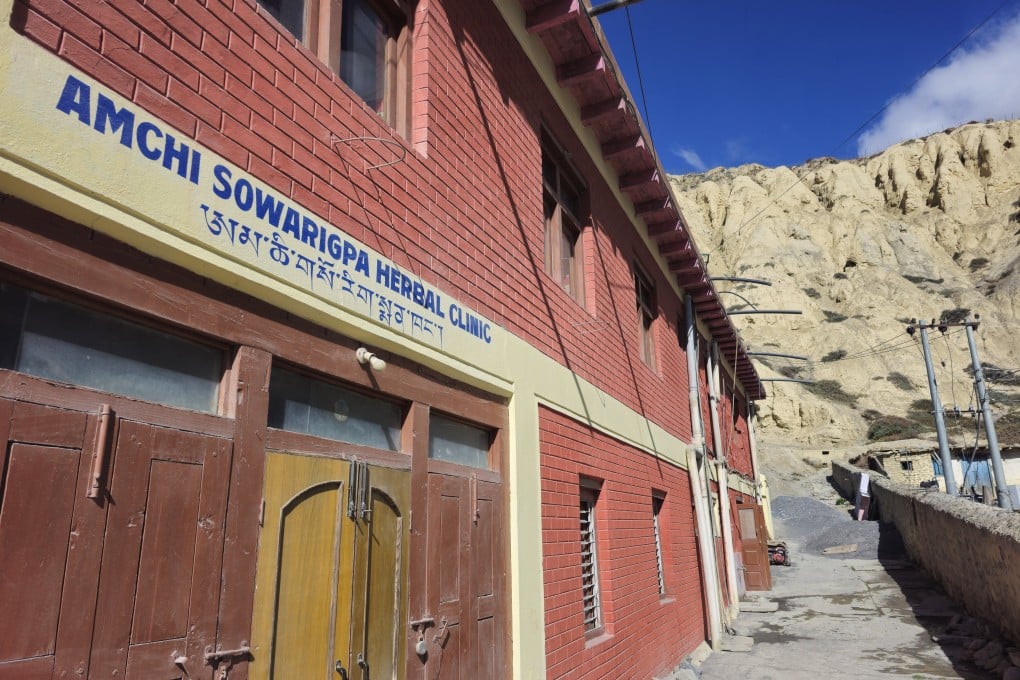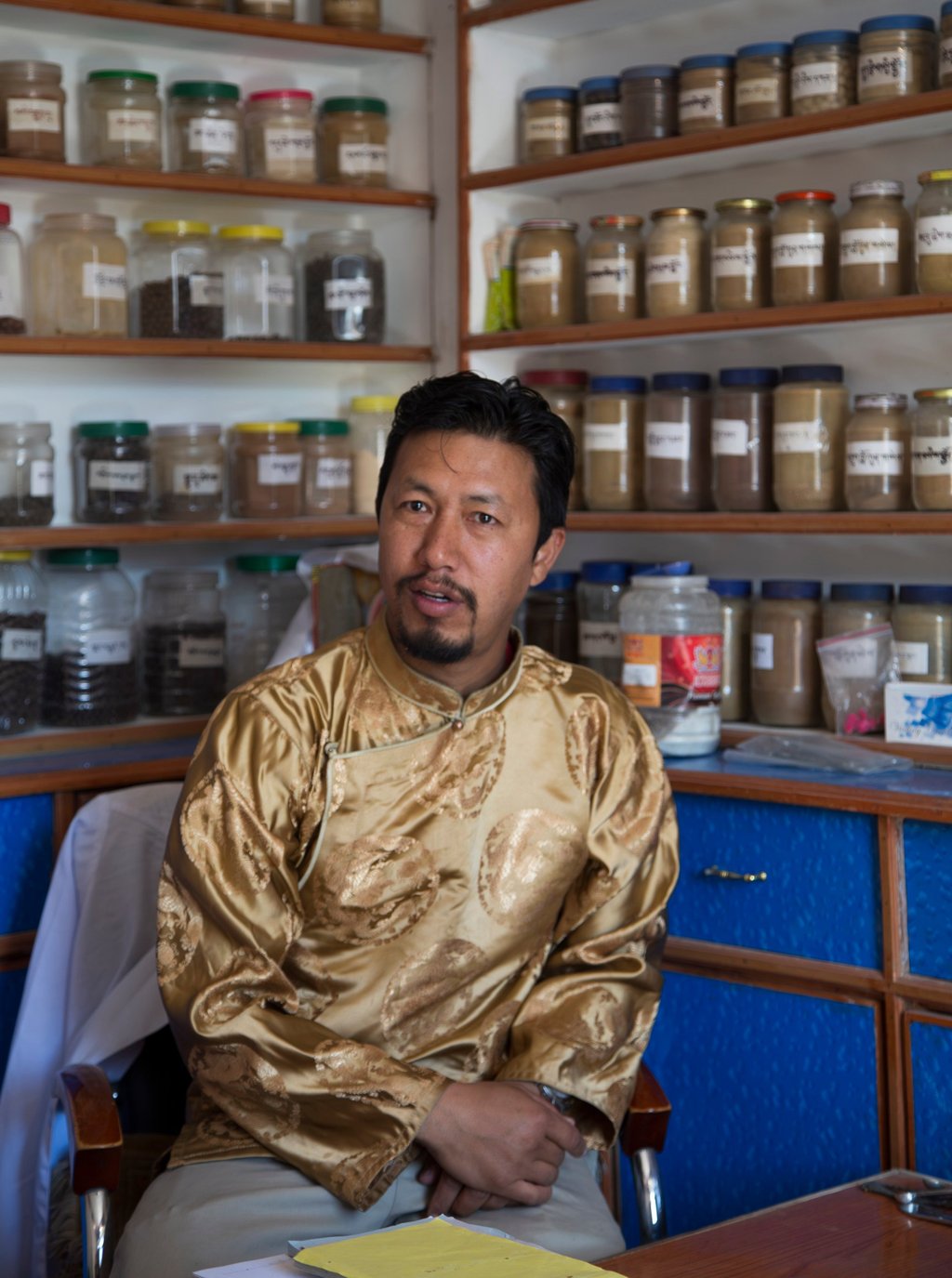Advertisement
Nepal’s traditional healers vow to preserve ‘secret and sacred’ indigenous knowledge even as climate change bites
- Climate change and a dwindling number of practitioners pose a threat to the Sowa Rigpa system of medicine that dates back to more than 2,500 years
- The number of practitioners in Nepal, where Sowa Rigpa is not formally recognised, is falling amid limited educational pathways and legal recognition challenges
Reading Time:5 minutes
Why you can trust SCMP
0

When a patient visits Tsewang Gyurme Gurung’s clinic, he reaches for their wrist first.
His eyes are closed and his fingers move slowly as if he is shifting guitar chords, while examining for a pulse.
Gurung, a traditional healer in Nepal’s northern district of Mustang, is making a diagnosis. Known as an amchi, he practices the traditional Sowa Rigpa system of medicine, which is based on Buddhist philosophies dating back to more than 2,500 years.
“When we do the pulse reading, we will be watching the frequency and amplitude of vital organs to find out if there are any imbalances,” Gurung explains. “The fingers are our tools, they’re the scanner to the body. Pulses are the messenger to the amchi from that body.”

The ancient practice of Sowa Rigpa is facing an existential crisis in Nepal. There are only about 200 amchi still practising in the country, according to the Sowa Rigpa Association, their numbers dwindling due to limited educational pathways and legal recognition challenges.
Advertisement